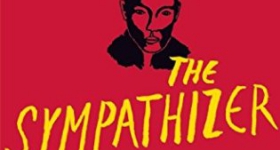IT'S FRIDAY NIGHT at the Alibi Room, a bar in Culver City, CA. Lisa Banuelos and David Kong, first to order, opt for a Korean shortrib taco special.
Since February, customers who once balked at two-hour-long lines on the street at the Kogi BBQ truck have flocked to the Alibi to indulge.
Banuelos, 26, recognizes Chef Roy Choi.
"Hey, we saw you on Fox News last night!"
Choi shrugs.
"That was him, wasn't it?" Banuelos asks her boyfriend before she proceeds to chat with the chef.
A little later, Choi moves back to the kitchen, telling me I should ask Banuelos and her boyfriend about why they come to the Alibi.
"I like the mixed crowd, all ages," Banuelos says. "It's good people-watching and the food is great. I'm Mexican and [my boyfriend's] Korean so it's perfect for us," referring to the Korean and Mexican elements that make up items such as the Korean short-rib taco - Korean short-rib meat in a taco shell topped with sesame-chili salsa roja, julienne romaine lettuce and a special cabbage slaw.
The Kogi BBQ truck has grown so popular It's even spawned knockoffs. But when the truck first appeared on Los Angeles streets on Thanksgiving Day 2008, no one would eat the hybrid concoctions.
"We waited outside the nightclubs but we couldn't get anyone to eat them," Choi says. "But when people started to eat the tacos, they blogged about It. That's how the word started spreading."
Kogi has since expanded to 25 cooks, six managers and a second truck, as well as opening up operations at the Alibi.
Although Choi, 39, has become the face of Kogi BBQ in numerous television appearances, he says he's just interested in making good food and creating a sense of family. Everyone who works at Kogi BBQ seems to be connected to Choi and his co-founders, Mark Manguera and Caroline Shin-Manguera. Choi, a professional chef for 14 years before starting the Kogi BBQ truck, has studied with the likes of Iron Chef Rokusaburo Michiba, who he names as a big influence.
Choi also comes from a Korean immigrant family that owned liquor stores, restaurants and grocery stores. "I grew up in the Korean restaurant. I did homework on the kitchen table, hung out with the old ladles. My lineage on my dad's side goes back thousands of years as cooks," Choi says.
But it took Choi years to find his passion in cooking. His family didn't want him to be a chef.
"I struggled with suppressing my artistic vision for 25 years. I was a bad muthafucka for my whole life. A tough baby, a rambunctious kid who never listened to anybody," he says. "When I was 13, shit just started to unravel. I did stupid stuff, stole, robbed, hung with thugs, artists. I hit rock bottom, I crossed many lines, but I didn't cross the ultimate line of disrespecting culture."
Choi respected his parents' wishes: He went to college and tried law school. But in the end he moved to New York and decided to chase his culinary dreams.
When Manguera approached him with the Kogi idea in fall 2008, Choi saw this as his chance to live the life he wanted.
"All the other stuff was training, [but now] I completely let go because I don't have anybody to answer to, don't have to ask for permission from anybody," Choi says. "I don't do this to Impress anybody. It's just graffiti. I'm just spray painting on walls."
Choi likens his operations to work of Gandhi and Martin Luther King, Jr. "It's an urban street movement that will flip our whole world upside down, where the underdog has a little bit of juice," Choi says.
Later, around midnight in Eagle Rock, CA, Choi and the crew serve tacos to a line that winds around the block.
"The line is thick like a Thai sausage," one customer yells, as a young genderqueer poses for a cell phone photo with the Kogi truck. Three men walk down the street with tinfoil-wrapped plates while four cops park their motorcycles in front of the truck, asking for food.
At 2 am, Henry de Ramos, 29, steps up as the last customer of the night. A firsttimer, de Ramos waited two hours to try the short-rib taco and burrito. After tasting his order, de Ramos grins and gives a thumbsup. "I'll be back," he says.
Ching-In Chen is author of The Heart's Traffic, a novel in poems from Arktoi Books/Red Hen Press.










Comments